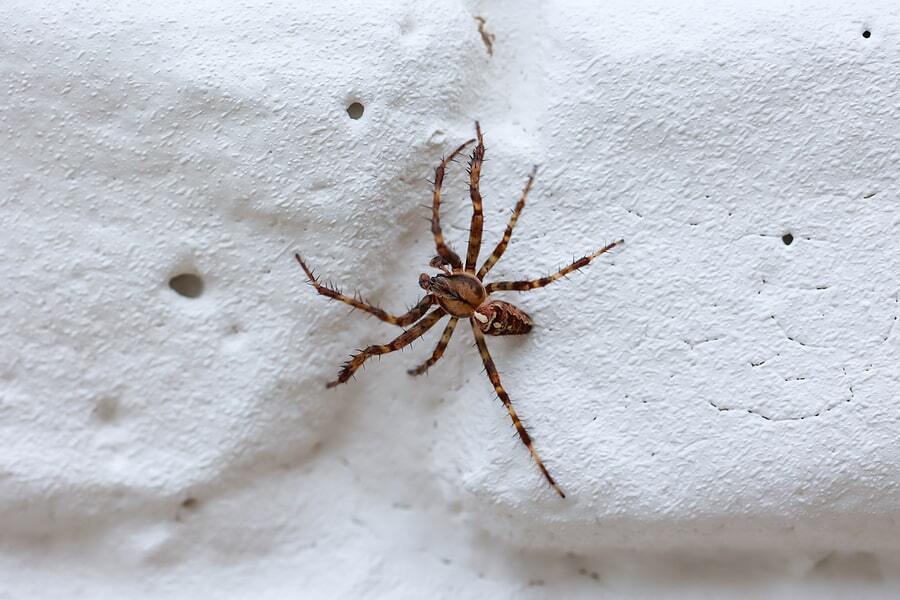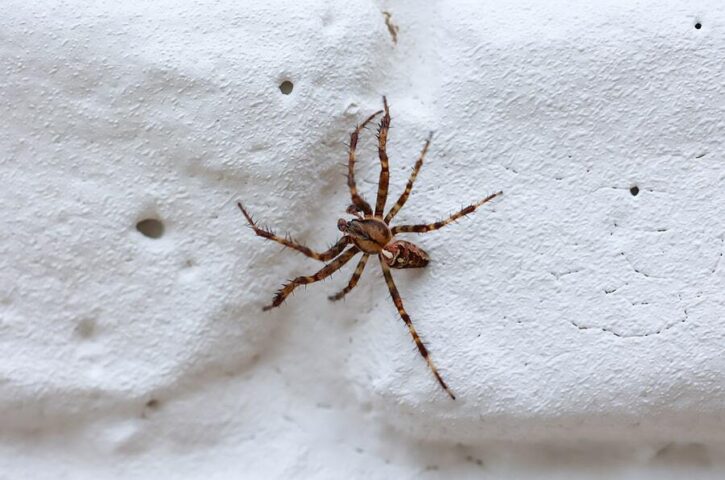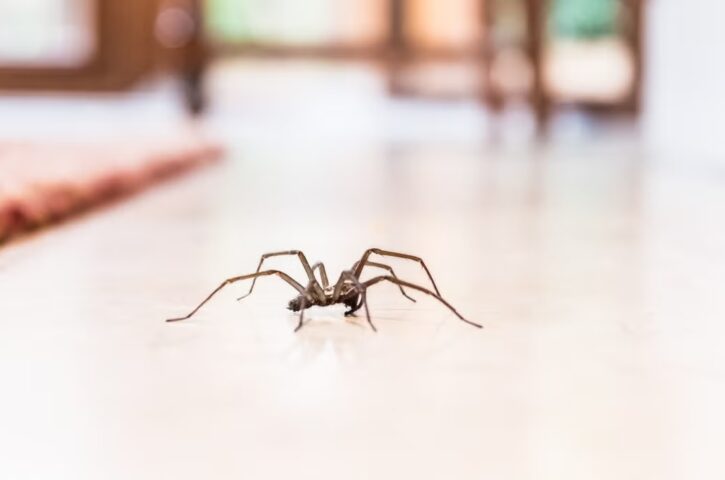
After all the rocks, they find a downside to all the good landscaping in Phoenix: more spiders around the property. On top of that, many Valley residents have embraced xeriscaping, which has enabled the local arachnids to flourish in our homes. Your rock gardens and decorative stone features are beautiful and save water. Still, they also give spiders just what they are looking for: shelter, prey, and respite from Phoenix’s extreme temperatures.
The rocks, irrigation systems, and outdoor lighting create an ecosystem for insects and the spiders that hunt them. For rock features with persistent spider problems, seeking advice from a pest control professional, such as Green Mango Pest Control, who can tailor their recommendations to your property layout, may prove beneficial.
Why and How Landscaping Rocks Create Ideal Hiding Spots for Spiders
-
Temperature Regulation in Desert Heat
Phoenix landscaping in the summer can be really hot, and spiders need a temperate environment. Landscaping rocks can provide that. Even when surface temperatures reach above 120°F, the areas between rocks are much cooler, creating microclimates that allow spiders to withstand intense heat.
-
Multiple Layers Create Complex Habitats
Spiders love to hide, and rock arrangements provide natural multi-level hiding places. Big landscape boulders provide overcast underneath, while smaller river rocks and pea gravel provide a million tiny pockets. The arrangement resembles natural desert habitats where many of Arizona’s spider species probably originated and used to live before urban sprawl.
-
Protection from Predators and Weather
Rock landscaping creates a solid structure, protecting spiders from birds, lizards, and other predators in the wild, which is common in Phoenix. The presence of stone shelters helps spider populations overcome heavy rains and floods during monsoon storms, allowing them to retain their territories year-round instead of migrating to new locations.
-
Stable Foundation for Web Building
Most species of spider like to anchor their webs to permanent, unmovable structures. Rocks make a good web construction framework, since one can attach at different heights to different points. While plants sway in the desert winds, rocks remain still, providing stable hunting perches.
-
Reduced Human Disturbance
Rock gardens are much easier to maintain than conventional grass lawns or flower beds. The habitat is less active by humans, which then allows spider populations to establish and grow without being regularly disturbed. Because rock landscaping requires little to no maintenance, it becomes an undisturbed homeland for spiders.
Role of Moisture and Insects Around Rocks in Attracting Spiders
Insects that spiders feed on find perfect breeding grounds due to the moisture they retain around landscaping rocks. Phoenix has an annual average precipitation of 8.03 inches. When this moisture from the rain flushes across rock substrates, it creates small water and moisture pockets which attract gnats, beetles, and other insects.
Drip irrigation systems are often designed to water plants near rock landscaping and constantly provide these areas with water. This attracts food for spiders, so they automatically make webs along irrigation lines and near points where moisture gathers.
The organic matter decomposing between the rocks, dead leaves, dead insects, and things rotting and falling apart, offers more food sources for insects. It holds moisture better than ambient surfaces and has a microcosm of life that ultimately feeds spider populations during the dry seasons common to Phoenix.
Long-Term Prevention: Keeping Spiders Outdoors, Not in Your Home
Since spiders rely on insects for food, routinely maintaining your rock features, such as clearing organic debris and inspecting irrigation systems for leaks, can drastically lower the number of their prey.
Companies like Green Mango Pest Control have experience dealing with the issues homeowners face when choosing rock landscaping over spider management. They can evaluate your unique property configuration and recommend specific treatments that safeguard your home while minimizing any impact on your gorgeous desert landscaping.
Since spiders settle into an area, regular professional inspections will help pinpoint trouble areas and give homeowners a chance to avoid more drastic treatment options later. Since you can keep spiders active in the Phoenix warm weather all year long, prevention is much more effective than reactive treatments.












